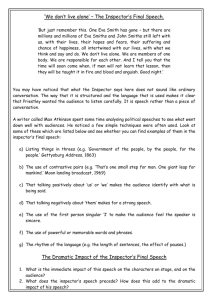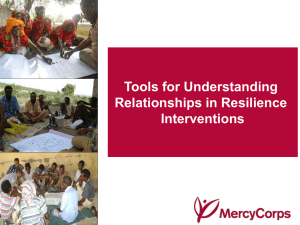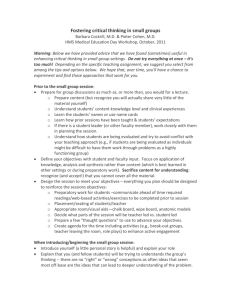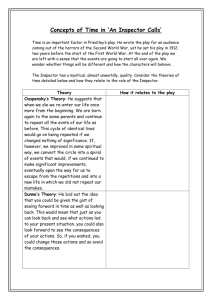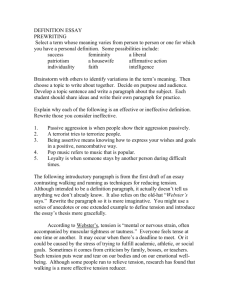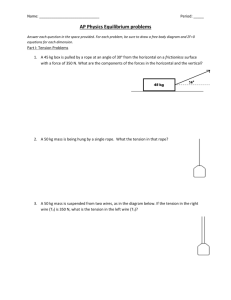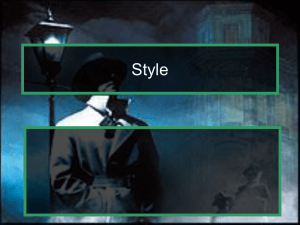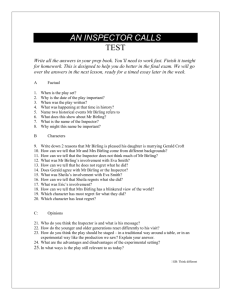What Dramatic Techniques are used in “An Inspector Calls” to Build
advertisement
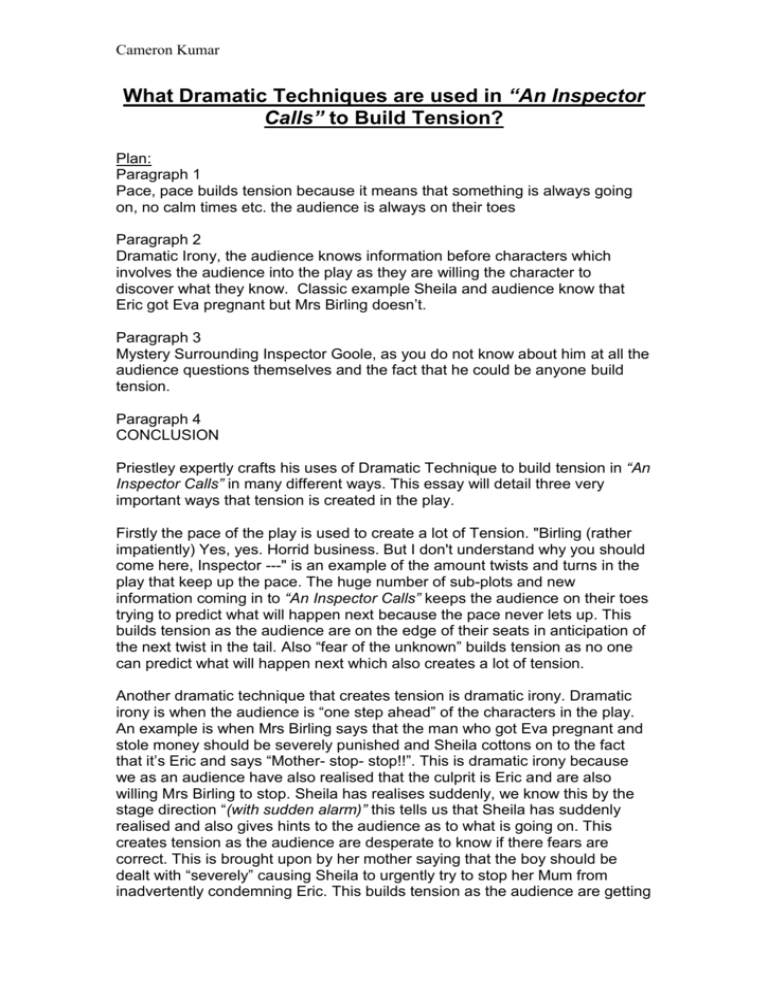
Cameron Kumar What Dramatic Techniques are used in “An Inspector Calls” to Build Tension? Plan: Paragraph 1 Pace, pace builds tension because it means that something is always going on, no calm times etc. the audience is always on their toes Paragraph 2 Dramatic Irony, the audience knows information before characters which involves the audience into the play as they are willing the character to discover what they know. Classic example Sheila and audience know that Eric got Eva pregnant but Mrs Birling doesn’t. Paragraph 3 Mystery Surrounding Inspector Goole, as you do not know about him at all the audience questions themselves and the fact that he could be anyone build tension. Paragraph 4 CONCLUSION Priestley expertly crafts his uses of Dramatic Technique to build tension in “An Inspector Calls” in many different ways. This essay will detail three very important ways that tension is created in the play. Firstly the pace of the play is used to create a lot of Tension. "Birling (rather impatiently) Yes, yes. Horrid business. But I don't understand why you should come here, Inspector ---" is an example of the amount twists and turns in the play that keep up the pace. The huge number of sub-plots and new information coming in to “An Inspector Calls” keeps the audience on their toes trying to predict what will happen next because the pace never lets up. This builds tension as the audience are on the edge of their seats in anticipation of the next twist in the tail. Also “fear of the unknown” builds tension as no one can predict what will happen next which also creates a lot of tension. Another dramatic technique that creates tension is dramatic irony. Dramatic irony is when the audience is “one step ahead” of the characters in the play. An example is when Mrs Birling says that the man who got Eva pregnant and stole money should be severely punished and Sheila cottons on to the fact that it’s Eric and says “Mother- stop- stop!!”. This is dramatic irony because we as an audience have also realised that the culprit is Eric and are also willing Mrs Birling to stop. Sheila has realises suddenly, we know this by the stage direction “(with sudden alarm)” this tells us that Sheila has suddenly realised and also gives hints to the audience as to what is going on. This creates tension as the audience are desperate to know if there fears are correct. This is brought upon by her mother saying that the boy should be dealt with “severely” causing Sheila to urgently try to stop her Mum from inadvertently condemning Eric. This builds tension as the audience are getting Cameron Kumar nervous waiting for the characters to discover what we already know and are literally willing them to find out so the characters can save face. Yet another example of Dramatic Irony is Mr Birling’s speech at the start of the play to Eric and Gerald. He says that he is assured a knighthood unless there is some sort of “scandal”. This is dramatic irony as that is exactly what happens, kind of like Mr Birling has predicted the future. It is also slightly oxymoronic as what he said has an opposite effect. This slightly gives the next part of the story away to the audience as they know, because he has said that, some sort of scandal will occur. The next dramatic technique that builds tension is the mystery surrounding the inspector. Gerald’s line “That man wasn’t a police officer” confirms the suspicions that the audience has had since the start of the play. The fact that there is absolutely no back story to the inspector makes the audience ask a lot of questions about him. This creates tension as the audience are questioning all manner of things about inspector Goole and, once again, “fear of the unknown” comes into play as the audience do not know anything about the inspector and are frantically trying to get answers to their questions. All this builds tension. The final dramatic technique I will analyse is a false sense of security. The fact that the family is having a “celebration” at the start lays down a sense of safety and happiness which creates suspense and shock as the audience is unsuspecting when the inspector shatter’s the merry life of the Birlings’. In conclusion Priestly uses a myriad of techniques to create tension within the play. I definitely think that dramatic irony is the most important of these dramatic techniques as it creates the most suspense and emotion in the audience. Other dramatic techniques include use of the phone, setting in one room, theatrical scenery, hindsight and a false sense of security. The three explored in this essay are main tension building features but are still barely scratching the surface of the tension in the world that Priestley built.
